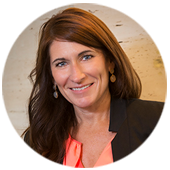Why this initiative?
Broadening pathways to CPA licensure
The accounting profession is at a pivotal point.
Declining high school graduation sizes, increasing demand for CPAs, increasing retirements and declining number of candidates sitting for the CPA exam are converging to severely restrict the number of CPAs who provide critical financial services and advice to communities, businesses and individuals.
It was with this in mind, after years of discussion, that the MNCPA board moved ahead with asking MNCPA leadership to draft legislation to address the pipeline issue facing the profession. Since introducting legislation in February 2023, there has been growing public support from organizations and individuals alike for broadening the pathways to CPA licensure.
On this page, you will find a highlight of issues and facts driving the conversation as we invite more stakeholders to the conversation to find a path forward.
 "I am so proud of the work done by the MNCPA to create optionality so all may benefit from our wonderful profession. Minnesota is approaching changes in our profession as an active resistor, by not simply sitting back and disagreeing with what is, but providing solutions of what could be alternative pathways to licensure. This feedback is necessary to drive change and stimulate productive conversations that will result in actionable next steps. The CPA exam is the gold star — the minimum standard of quality — while additional education should be a personal choice."
"I am so proud of the work done by the MNCPA to create optionality so all may benefit from our wonderful profession. Minnesota is approaching changes in our profession as an active resistor, by not simply sitting back and disagreeing with what is, but providing solutions of what could be alternative pathways to licensure. This feedback is necessary to drive change and stimulate productive conversations that will result in actionable next steps. The CPA exam is the gold star — the minimum standard of quality — while additional education should be a personal choice."
— Stephanie Markert, CPA, CliftonLarsonAllen LLP
Barriers to the profession
The additional year of education and cost associated with it is a significant barrier to potential accounting students and those who may sit for the CPA exam. High school graduation rates are declining, and fewer graduates are seeking higher education. Additionally, competition for those students has increased greatly with other growing industries. Delaying a year of earning combined with the cost of an additional year of school is prohibitive.
Increasing demand for CPA services
There are not enough CPAs to provide the very needed — and growing services — required by public accounting firms, businesses, governmental entities and nonprofits. Increasingly, more work is being transferred to an overseas labor force, who do not meet the same requirements to practice as a CPA in the United States.
Public protection
The financial stability of communities, organizations and individuals are in peril because there are not enough CPAs. In the past year, the Minnesota Society of CPAs experienced sharp increases in calls from cities, school districts, individual clients and companies required to have an employee benefit plan audit, asking for help to find a CPA. Their prior CPA was either no longer practicing or let them go as a client.
Facts
 A survey of MNCPA members shows an increase in the number of new hires who hold accounting degrees with 120 credit hours. Fifty percent of respondents say it is unlikely or highly unlikely staff with 120 hours will sit for the CPA exam.
A survey of MNCPA members shows an increase in the number of new hires who hold accounting degrees with 120 credit hours. Fifty percent of respondents say it is unlikely or highly unlikely staff with 120 hours will sit for the CPA exam.
 A 2019 study titled, “Occupational licensing and accounting quality: Evidence from the 150-hour rule,” by John Barrios, a professor at University of Chicago Booth School of Business, found a 15% reduction in first-time CPA exam candidates after the 150-credit requirement was implemented. This decline aggregates over multiple years. The study also found there wasn’t an increase in work quality after the 150-hour rule was adopted.
A 2019 study titled, “Occupational licensing and accounting quality: Evidence from the 150-hour rule,” by John Barrios, a professor at University of Chicago Booth School of Business, found a 15% reduction in first-time CPA exam candidates after the 150-credit requirement was implemented. This decline aggregates over multiple years. The study also found there wasn’t an increase in work quality after the 150-hour rule was adopted.
 A study published in 2020 by Brian Meehan and E. Frank Stephenson from Utah State University found the 150-hour education requirement acts as a barrier to entry, and their analysis suggests that that the additional educational requirement does not enhance candidate quality.
A study published in 2020 by Brian Meehan and E. Frank Stephenson from Utah State University found the 150-hour education requirement acts as a barrier to entry, and their analysis suggests that that the additional educational requirement does not enhance candidate quality.
 We see the impacts across Minnesota with a disproportionate effect on Greater Minnesota as businesses, governmental entities, nonprofits and individuals report they are unable to find CPAs. This is also happening in other states.
We see the impacts across Minnesota with a disproportionate effect on Greater Minnesota as businesses, governmental entities, nonprofits and individuals report they are unable to find CPAs. This is also happening in other states.
 Members who have a voice in hiring were surveyed concerning the CPA pipeline. Two takeaways:
Members who have a voice in hiring were surveyed concerning the CPA pipeline. Two takeaways:
- 67% say they hire college graduates without 150 college credits for entry-level positions that require accounting/tax knowledge.
- More than 50% say, historically, new hires in accounting-related roles without 150 college credits were unlikely to pursue the CPA credential.